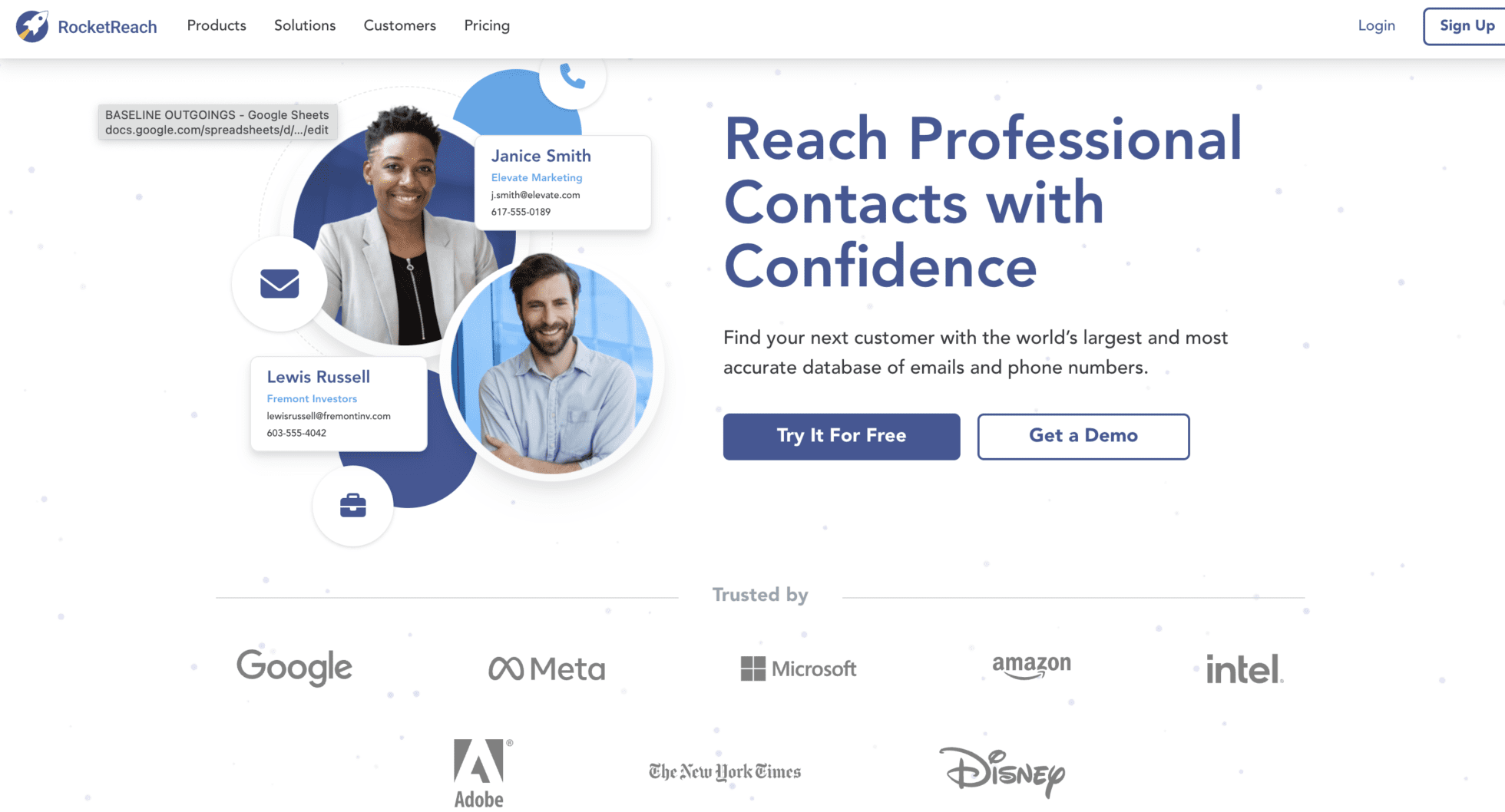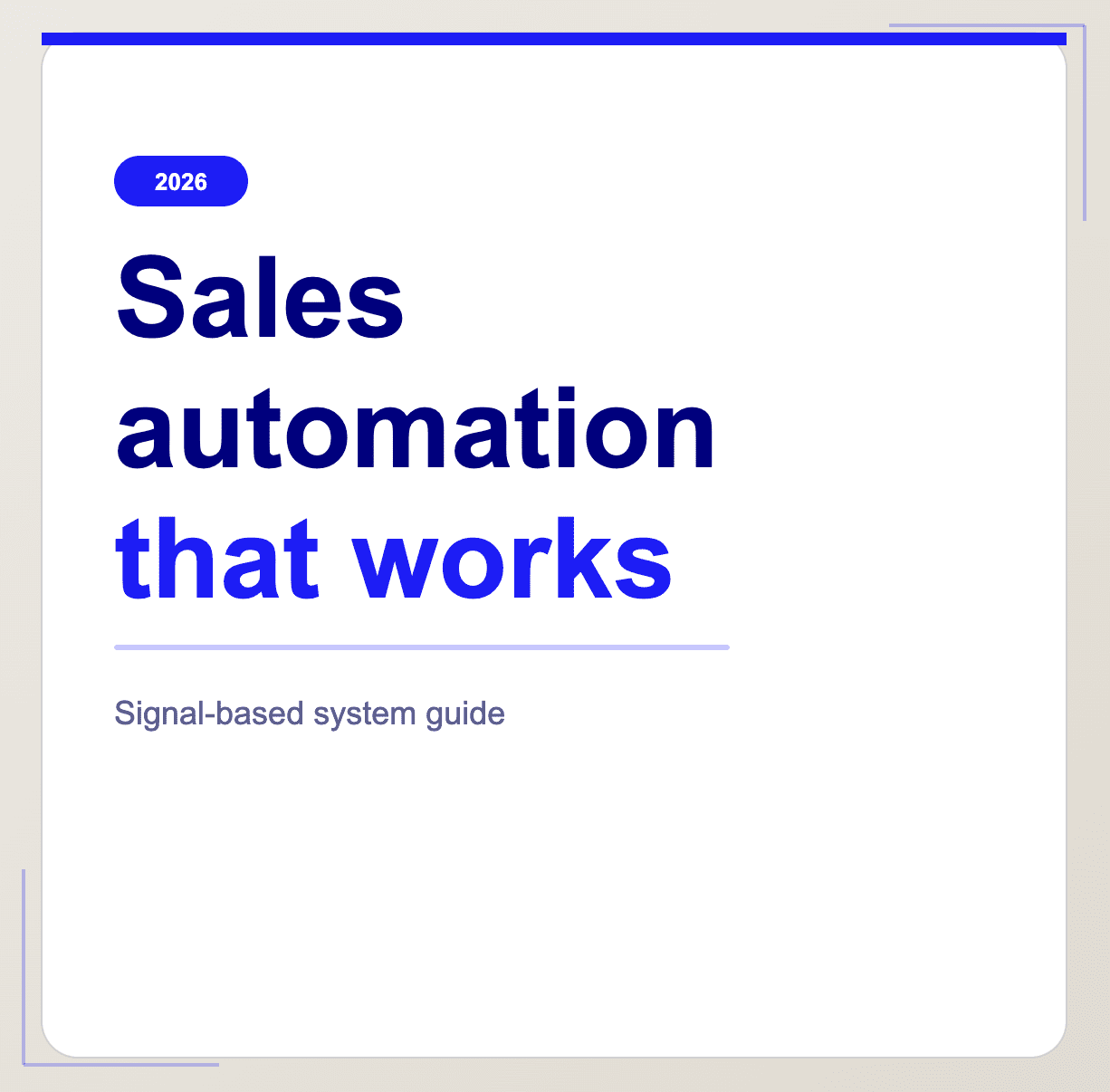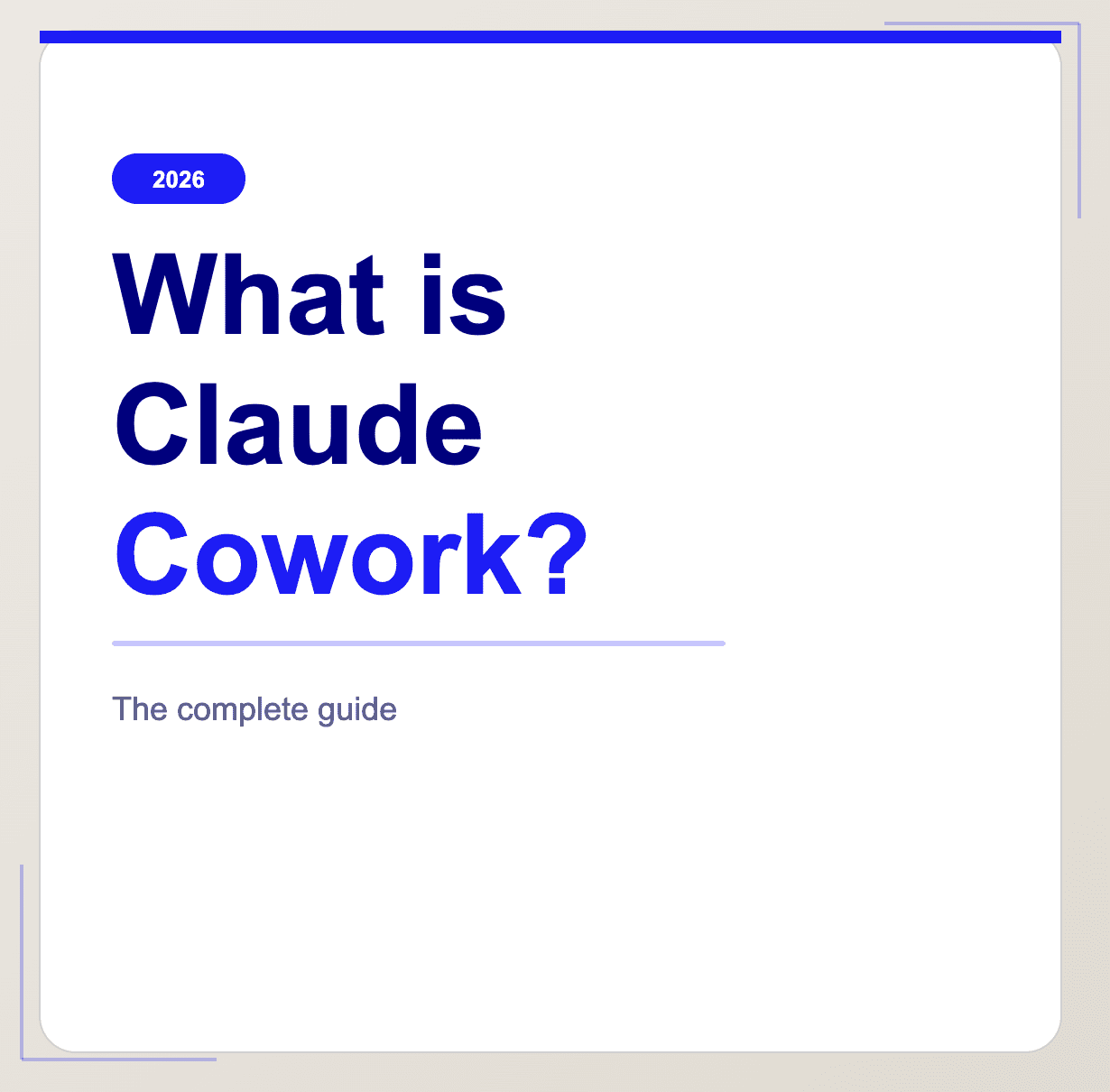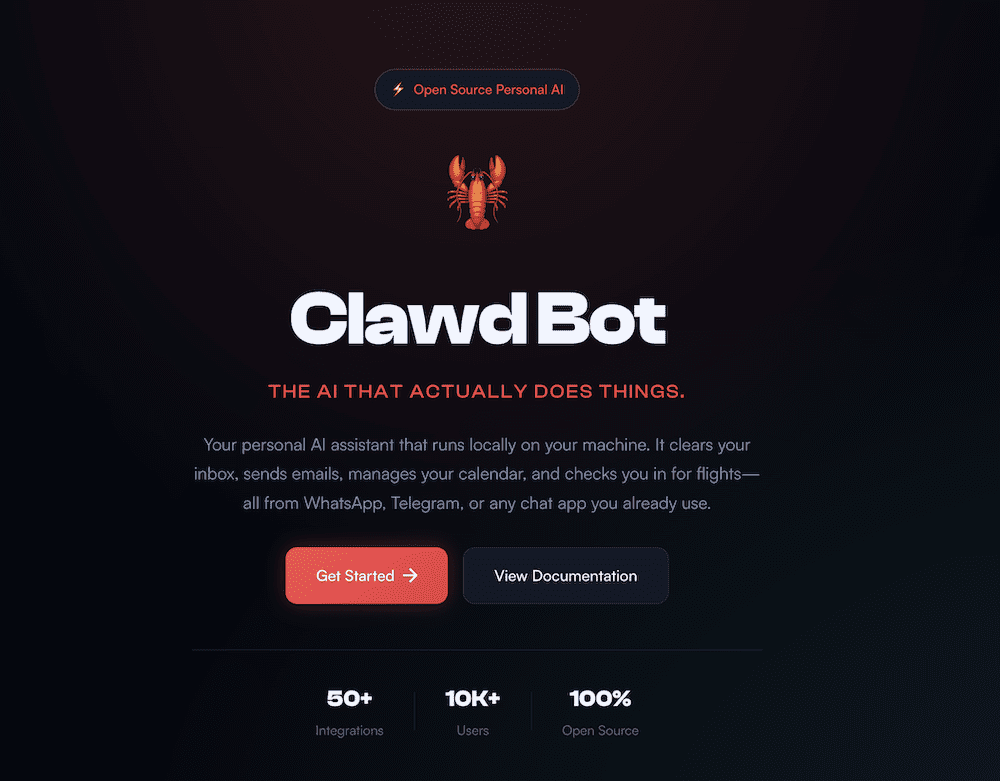Table of Contents
So you’ve probably heard about RocketReach, the data enrichment tool endorsed by 95% of the S&P 500. It’s loved by Google, Meta, Microsoft, Amazon and more – but does that automatically mean it’s right for your business?
Short answer: no.
RocketReach might be great, but it’s far from perfect. One of the biggest things it has going for it is its widespread support by industry giants, but that alone doesn’t make it a good platform. The fact it’s easy to use and integrates with just about any work app you could think of does.
But while RocketReach will enrich your data and connect you with the world’s best contacts, there are some RocketReach alternatives that give it a real run for its money. Before we dive into them, though, let’s take a deeper dive into what makes RocketReach the beloved tool it is.
Table of Contents
What’s So Good About RocketReach?
RocketReach is widely considered one of the best data enrichment tools because of how simple and straightforward it is. Like most of the RocketReach competitors on this list, it has tons of integrations, APIs that can be used to power your own application, and a database with more than 700 million profiles and 35 million companies by location, title, industry, company details and more.
There are, however, some downsides to RocketReach. The most obvious drawback is the price. Compared to some of the other RocketReach alternatives listed below, RocketReach is fairly expensive. It’s not a bank-breaker, but it’s certainly not a budget option. To make this worse, there’s no free plan that you can use to try out the features before you commit to a subscription. This can be a real PITA when you’re getting started.
Finally, RocketReach has been criticized for its poor data coverage when it comes to smaller companies or more niche markets. Its database is large, but not as comprehensive as it needs to be for some customers. Of course, this all depends on your niche.
RocketReach Pros
- User friendly: RocketReach provides a user-friendly interface for finding contact information.
- Trusted: RocketReach is trusted by 95% of the S&P 500.
- Lots of integrations: There are tons of integrations for you to use, as well as APIs for making your own application.
RocketReach Cons
- Expensive: RocketReach is considered expensive compared to some of its competitors.
- Data coverage: Sometimes it can be difficult to find contact information for smaller companies or more niche markets.
- No free plan: RocketReach doesn’t have a free plan.
RocketReach Pricing
The Essentials Plan for RocketReach is 33€ per month. This only allows 1,500 annual lookups. The Pro Plan charges 68€ per month for 3,600 annual lookups. The Ultimate Plan will set you back 171€ per month, but it nets you 10,000 lookups per year.
There is no free plan and the paid plans provide little more information about the specifics.
5 RocketReach Alternatives That You Shouldn’t Sleep On
1. Clearbit
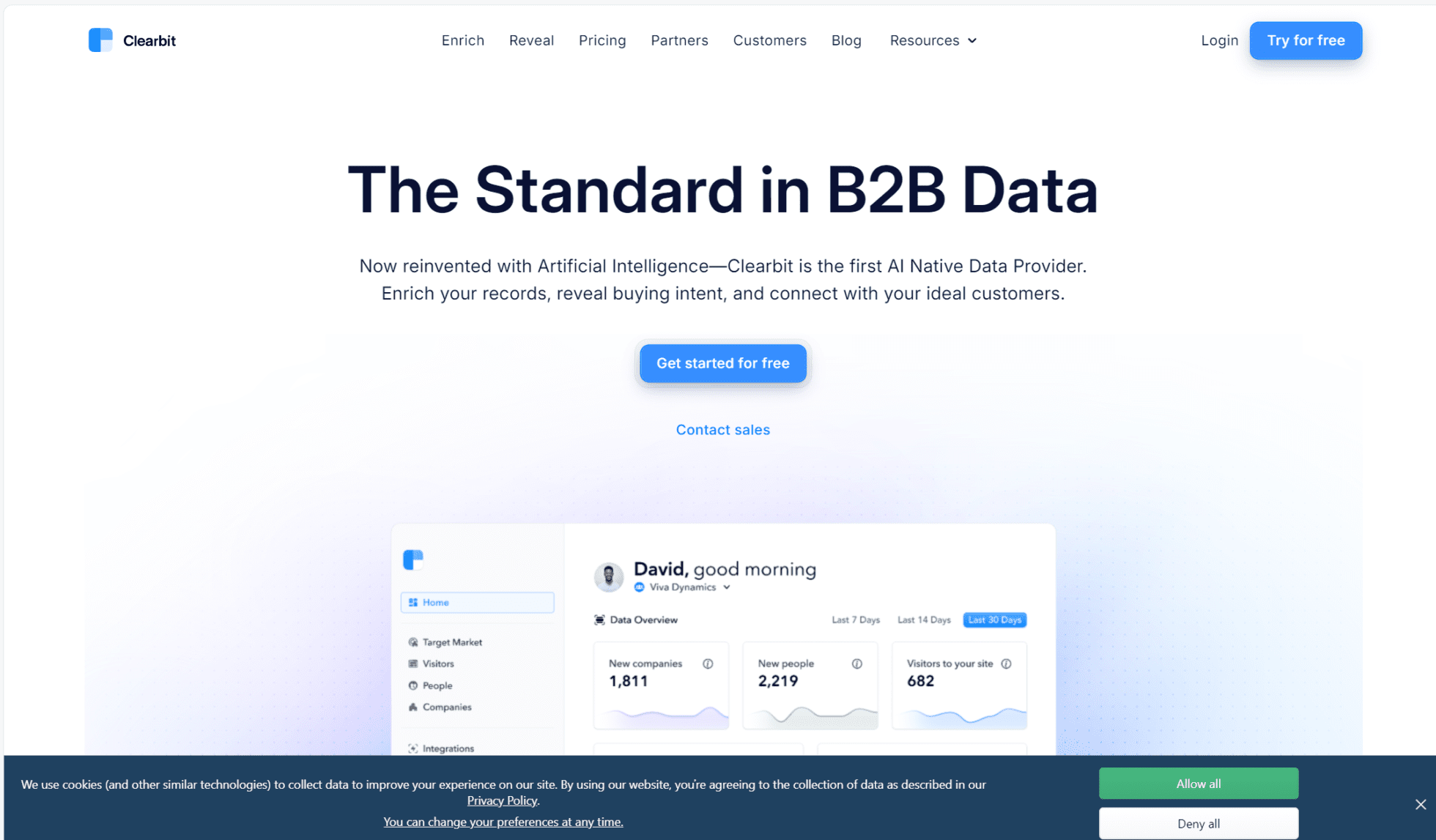
Clearbit is a data scraper tool that powers sales teams and puts them in touch with the people they need. It’s a fantastic platform that offers a killer feature that most data enrichment tools don’t: IP tracking. Does your website traffic checker show a heavy flow? How would it feel to turn every visitor into a lead? That’s what Clearbit offers.
Clearbit comes with a broad database that is reliably updated. Its machine learning algorithms allow you to stay in sync with the business contacts of your dreams while its IP tracking transforms your website traffic into hot leads as if by magic.
Clearbit Pros
- User-friendly: It has a simple and intuitive layout that enables you to seamlessly navigate.
- Integrations: Clearbit has hundreds of integrations to streamline your workflow.
- Emails: Clearbit makes emailing en masse simple.
- Converts traffic into leads: Clearbit turns website visitors into leads with full company profiles. No more cold calling!
Clearbit Cons
- Expensive for small businesses: Small businesses may not get as much value out of the tool as larger ones.
- Inaccurate phone numbers: The phone numbers it provides can often be inaccurate.
Clearbit Pricing
Clearbit’s free plan allows you to make use of its core features. This includes de-anonymizing your site traffic – Clearbit’s standout feature. This is a huge step up from RocketReach which doesn’t allow a free plan at all, and doesn’t offer IP tracking.
Unfortunately, Clearbit’s pricing for the paid plans is unavailable on their website. For this, you have to reach out to the Clearbit sales team directly to request a quote. This setback isn’t the end of the world, but it’s not as streamlined as it could be.
Clearbit vs RocketReach: The Verdict
Clearbit is one of the best RocketReach alternatives. Its traffic conversion option is a great benefit that you won’t find anywhere else in this list. However, it ultimately depends on the scope of your business and what you want to achieve. A B2B business that receives a lot of potential clients on their website should give Clearbit’s free plan a whirl before buying into RocketReach on faith alone.
If, however, you’re more set on cold-calling contacts you’ve scraped from the web, RocketReach might be the better choice. Clearbit’s phone numbers are often criticized for being inaccurate.
The Complementary Sales Recorder: tl;dv
tl;dv is not a contact scraper. It’s not built to feed you contact information. It is, however, designed to help you extract insights from every video call you ever make. From sales calls to user interviews, tl;dv allows you to effortlessly pluck insights from prospects or users and send them directly to your CRM of choice, along with the contact information gathered by RocketReach or one of its competitors.
While RocketReach and other data enrichment tools focus on getting you more contacts, hotter leads, and better prospects, tl;dv helps you mine data from video calls and sync it with your CRM of choice through recorded video calls, accurate transcripts, and AI-generated notes and summaries.
With tl;dv, you can timestamp important meeting moments, tag colleagues so they can jump directly to the part that’s relevant to them, and even edit clips into reels. You can search your entire meeting library by keyword to quickly locate all the calls that talk about your specific topic. This is great for identifying trends and patterns in your sales calls, or for thoroughly preparing for a follow-up call.
How Much Does tl;dv Cost?
tl;dv’s free plan SLAPS. From day one and penny zero, you get unlimited recordings and transcripts! Not only that, but you can get started straight away. None of this fiddling around to create an account – just a few clicks and you’re ready to record. tl;dv’s free plan also offers AI-generated notes, summaries, and action points.
tl;dv’s Pro Plan costs just $20 per month and this unlocks all the top CRM integrations so you can funnel your insights from sales calls directly to your customer relationship management software. This also allows you to make highlight reels, download calls and transcripts, and integrate with more than 5,000 other productivity tools.
tl;dv Pros
- Free AI Integration: Use state of the art AI to provide summaries, notes, and automatic speaker detection.
- Free and Instant Translations: Live transcriptions in 25+ languages for Zoom, Google Meet, and MS Teams.
- Amazing Free Plan: Unlimited free recordings of Zoom, Google Meet, and MS Teams calls.
- Easy to Use: tl;dv has an intuitive design that makes it super simple to use.
- Timestamps and Tagging Features: Timestamp your meeting highlights to quickly jump back to specific moments in the call. It also features the ability to tag colleagues at specific meeting moments so they get an email with a link straight to their inbox.
- Integrations: Push timestamps and meeting clips directly to Notion, Slack, HubSpot, Salesforce, and more via third-party integrations.
- Create Clips and Highlights: Highlight sections of the transcript to create clips out of recorded meetings.
- Intuitive Library: Search your meetings library for keywords in transcripts to quickly find what you’re looking for.
tl;dv Cons
- Compatibility: Not yet available for WebEx or BlueJeans.
All in all, it doesn’t matter which data enrichment tool you decide to use for your organization. Complement it with tl;dv and your data will rocket to the next level.
Now let’s take a look at the rest of the RocketReach alternatives.
2. Apollo
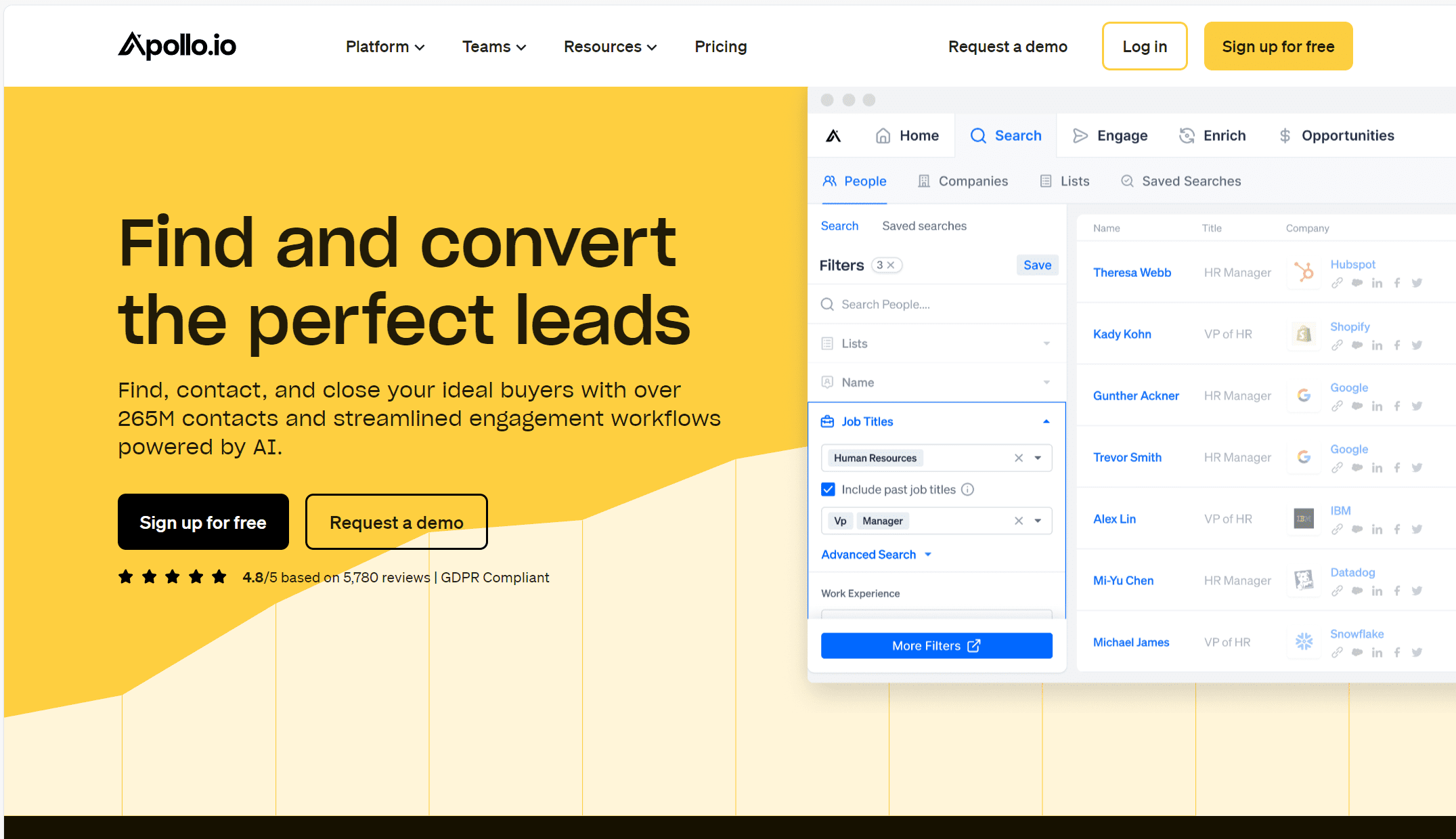
Apollo is a monster of a tool. It’s been specifically designed to help organizations with their sales and marketing efforts. The result? A comprehensive all-in-one sales platform that out-features all the RocketReach alternatives.
While this can be seen as a mega positive, it’s also worth bearing in mind that it has a bit of a steeper learning curve than the other competitors on this list. The learning curve isn’t so steep as to make it unlearnable, but it’s definitely a step above RocketReach and the like.
Like other RocketReach alternatives, it can scrape LinkedIn for contacts and set up an emailing campaign for you, but it can also do A/B testing, AI-assisted email writing en masse, and even video call recording and transcribing (but only in the higher paid plans, unlike tl;dv which includes both recording and transcribing, as well as a whole suite of dedicated call recording features, for free).
Apollo arguably has the best free plan of all the data enrichment tools though. And its whopping 5,659 5-star reviews on G2 show quite clearly how well loved this tool is. If you’re in the market for RocketReach alternatives, Apollo is the highest rated one of the lot – and for good reason.
Apollo Pros
- Personalized and automated: Apollo offers email tracking, cadence automation, and personalized outreach.
- Data accuracy: It offers accurate and up-to-date information about companies and contacts.
- Comprehensive: Campaign management is possible from within the platform.
- Integrations: Apollo integrates with just about any CRM or sales tool you could think of.
- Free plan: It has a fantastic free plan so you can give it a whirl without committing to anything long-term.
- Analytics: A/B testing empowers you to find out what works and what doesn’t.
Apollo Cons
- Complex: The amount of features and the complexity of each can be overwhelming for a small business that just wants to focus on data enrichment.
- Expensive: The higher end plans for Apollo might be considered expensive compared to other RocketReach alternatives.
Apollo Pricing
Apollo’s free plan offers 10,000 free email credits. You can download the LinkedIn extension, send 250 emails per day, and even integrate with Zapier all without spending a single cent. There are lots more features on the free plan and you can find all the details here.
Apollo’s paid plans start at $49 per user per month, billed annually. This offers a sharp increase in the number of credits from the free plan, as well as plenty more integrations. It allows you to move data in bulk (up to 10,000 records at a time). There’s also a 14-day free trial for Apollo’s Basic and Business plans.
The Business Plan costs $79 per user per month. It includes everything in Basic, plus some extra credits. You also unlock A/B testing, AI-assisted email writing, and call recordings! Their Conversations feature is also unlocked here: an AI-powered conversation intelligence that provides you with insights straight from your video calls. While it’s brilliant that Apollo recognizes the need for extracting data insights from video calls, it’s not as well-equipped to do that as tl;dv, a dedicated online meeting recorder.
Finally, Apollo’s Organization Plan is $99 per user per month. This dramatically increases the limits of all features and adds call transcriptions among other things.
Apollo vs RocketReach: The Verdict
Apollo is more comprehensive, more complex, and more of an all-in-one sales tool than RocketReach, or any of the RocketReach alternatives for that matter. While Apollo is relatively easy to use, it does have a steeper learning curve for its more complex features, and it tends to have a broader scope than most data enrichment tools. It targets sales teams with a wide array of sales-related features. Contact scraping for Apollo is just a piece of the sales puzzle.
If, on the hunt for RocketReach competitors, you’re looking for an all-inclusive tool that can do far more than just gather contact information, then you can end your search here. Apollo is the tool for you. If, however, you’re looking for contact scrapers and you want them to do exactly that without any fuss, then RocketReach or Clearbit might be a better option.
3. Seamless.ai
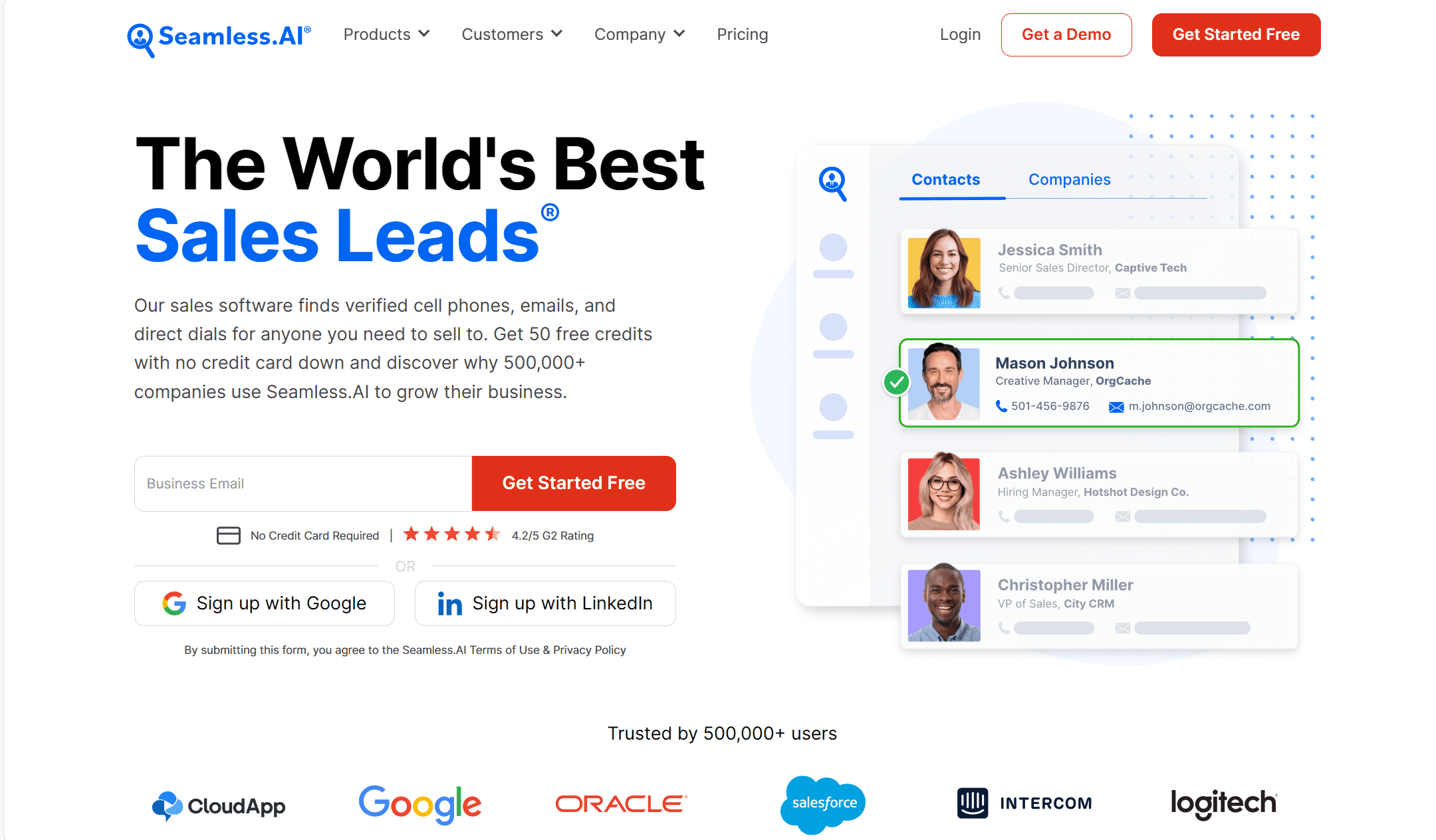
Seamless is another scraper and data enrichment tool that aims to connect you with the best prospects for your business. Their sales software finds verified cell phones, emails, and direct dials for anyone you need to sell to. Seamless.ai also has a standout feature of its own: a real-time search engine.
Dubbed the first and only real-time search engine for B2B sales leads, Seamless had 1.9+ billion contact and company records verified in 2022. On average, they claim to create a 5-10x ROI for your business as it helps you connect directly with your ideal customers so you can build your pipeline, shorten your sales cycle, and close more deals at scale.
Seamless Pros
- Ease of use: Seamless is considered very easy to use, including the LinkedIn extension.
- One-click sync with CRMs: Seamless has tons of integrations and they all work seamlessly.
- High refresh rate: Seamless identifies changes in people’s contact information and updates them.
- Data quantity: With more than 1.9 billion contact and company records, Seamless’s search engine can put you in touch with almost anyone.
Seamless Cons
- Low customer reviews: While Seamless talks the talk, the customer says otherwise. It scores just 6.1/10 on TrustRadius from 45 reviews and 3.7/5 on Capterra from 140 reviews.
- Difficult to cancel: Some of the reviews talk about having to jump through hoops to cancel their subscription and still being billed afterwards.
- Poor customer service: Seamless doesn’t seem to excel in making their customers happy.
Seamless Pricing
Seamless doesn’t reveal its pricing on the website. Instead, you have to contact a sales rep. There is a free plan that doesn’t require any credit card to sign up, and there is also a free trial of the Basic Plan.
The Pro Plan offers daily credit refresh as well as Pitch Intelligence, unlimited integrations, job changes announcements, and much more. The Enterprise Plan offers all this with the addition of quarterly business reviews and phone support.
Seamless vs RocketReach: The Verdict
Seamless.ai is a great RocketReach alternative for its real-time search engine that makes finding contact easier than ever. However, its customer reviews give it a significantly lower trust rating than RocketReach. Seamless offers more contacts than RocketReach, and arguably makes them easier to find, but it might be worth taking up their no-card free trial and giving it a test run before potentially getting stuck in one of their paid plans.
4. Hunter
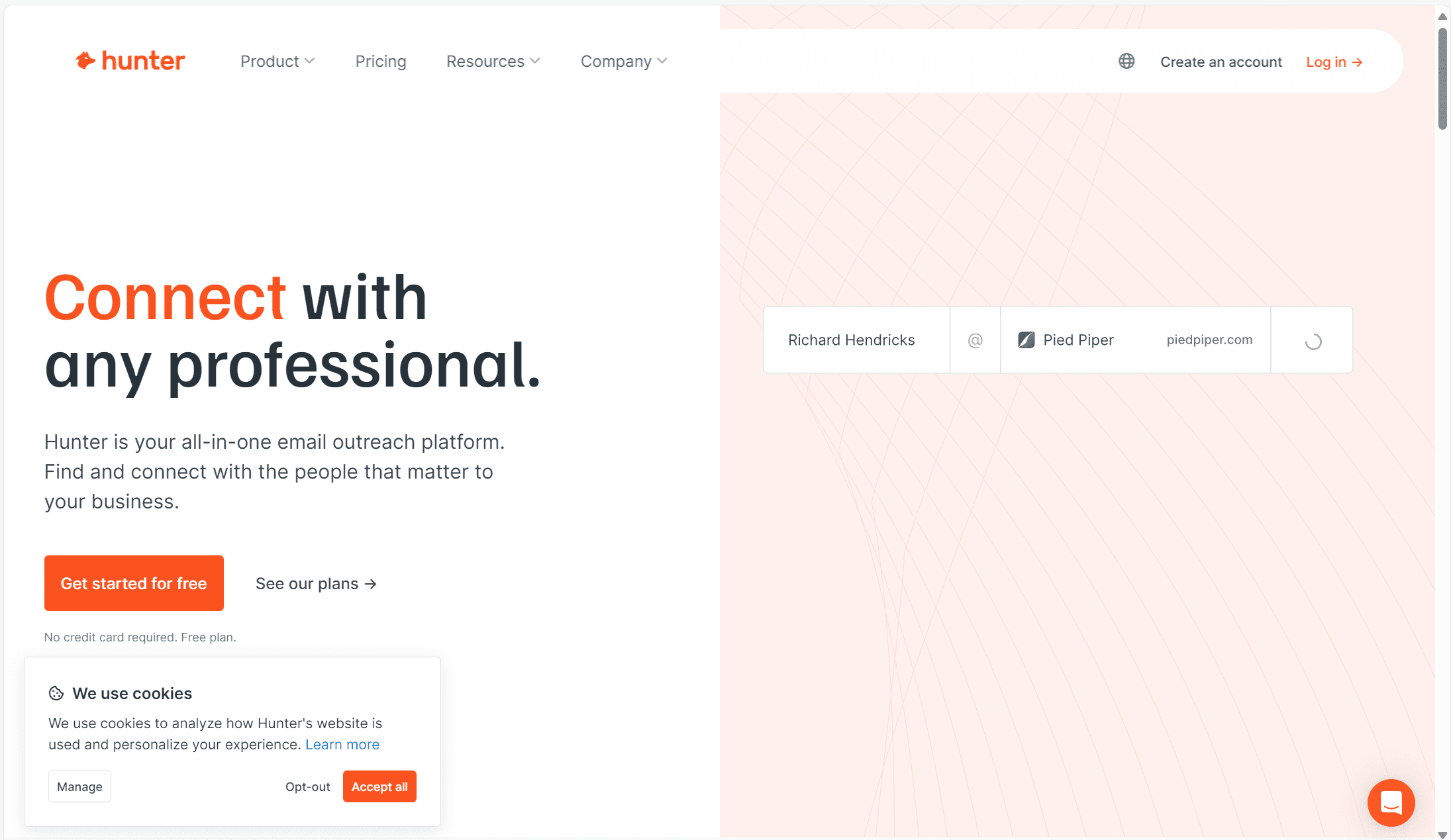
Hunter was built to connect you with any professional. An all-in-one email outreach platform, Hunter makes it simple for you to find and connect with all the people that matter most to your business. Its email automation and personalization is one of the best in the business.
Using a combination of proprietary technology and artificial intelligence to find, verify, and enrich contact details, Hunter can connect you with decision makers almost instantly. While it doesn’t have Seamless’s real-time search engine, or Clearbit’s IP tracking, it does have the ability to extract the contact information of people from any domain you visit.
Like other RocketReach alternatives, Hunter has a bunch of great integrations with CRM platforms and productivity tools. You can make use of Hunter’s APIs to sync your data to wherever is best for you, or even make an application. Hunter is also recognized as a transparent and compliant company which is always a big plus.
Hunter Pros
- Email campaigns: Hunter is great for email campaigns – especially cold emails.
- Email verification: Hunter verifies email addresses to protect your sender reputation.
- Search via website domain: You can use Hunter to easily find emails from website domains.
- Ease-of-use: The extension is intuitive and slick.
Hunter Cons
- Limited data: Hunter has limited data compared to many of its competitors.
Hunter Pricing
Hunter’s free plan isn’t the best, but at least they have one! You’ll get 25 monthly searches and 50 monthly verifications for signing up to the free deal. With this, you can try out the basic features and give the platform a spin before committing to anything long-term.
In terms of paid plans, Hunter’s Starter Plan costs 34€ per month. This boosts your monthly searches to 500 and monthly verifications to 1,000. This also allows you to find emails via website domains. You can connect 3 separate email addresses and launch your email campaign to 2,500 people. With this plan, you’ll also receive priority support.
The Growth Plan comes in at a hefty 104€ per month. It offers mostly the same features as the Starter Plan but with higher limitations. The Business Plan takes those limitations and obliterates them, but it sets you back a rather steep 349€ per month.
Hunter vs RocketReach: The Verdict
If you want to get the most out of Hunter, you have to pay the price. Its most expensive plan is more than twice as much as RocketReach’s most expensive one. You could argue that Hunter offers more value because of its ability to search by domain, stay compliant, and set up email campaigns, but only you can judge whether it’s worth the extra cost.
It’s also worth mentioning that Hunter’s dataset is smaller than most of the RocketReach alternatives on this list. This means you could end up high and dry if your goal was to search for more niche prospects.
5. LeadIQ
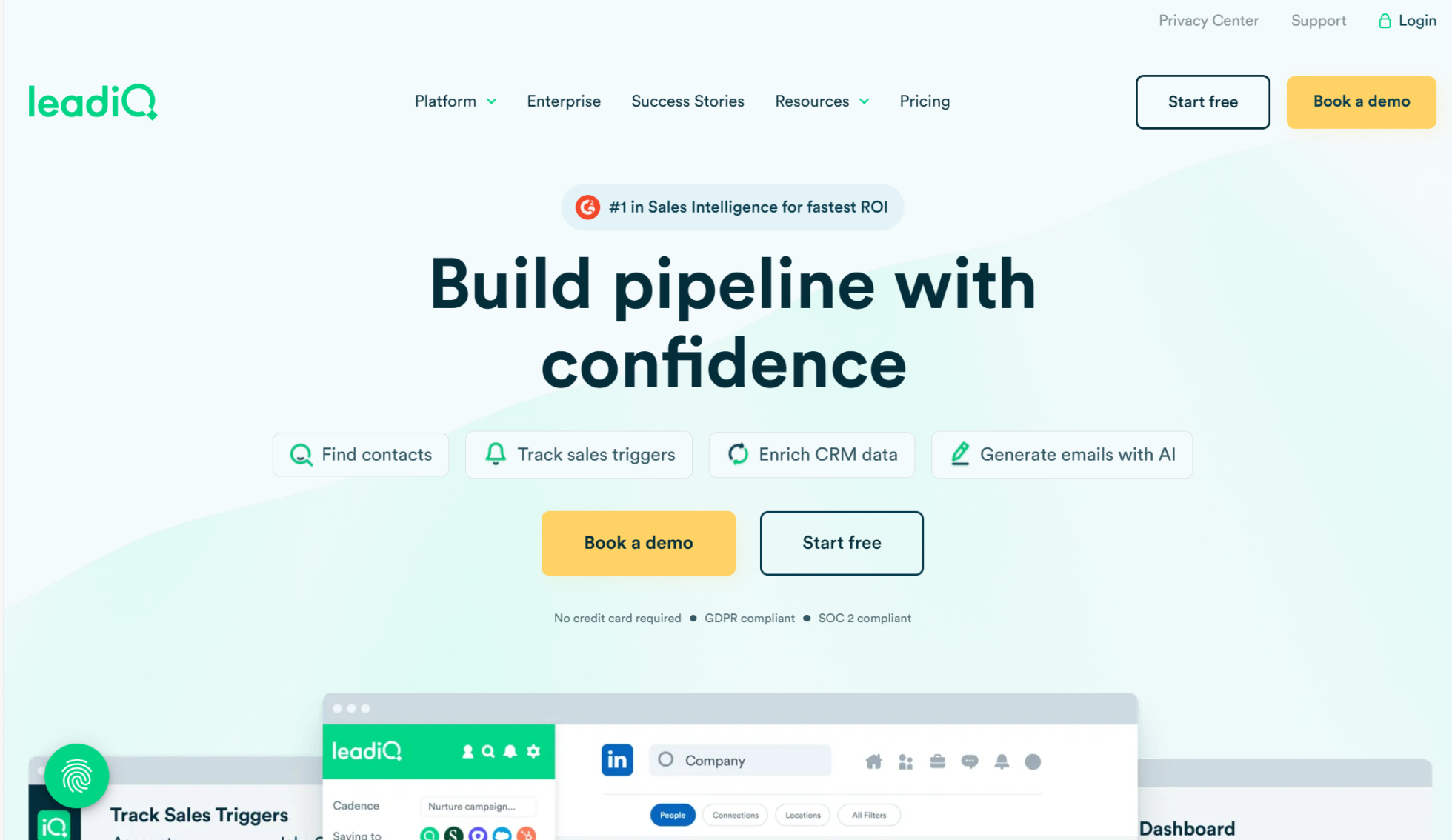
LeadIQ is designed to help you build a pipeline with confidence. From unearthing contact information to tracking sales triggers, LeadIQ is a great sales tool built to enrich your CRM data. Like Hunter and Apollo, you can even use it to generate emails with AI to speed up and personalize your emails en masse.
LeadIQ bills itself as a smart B2B database with a sharp focus on quality and accuracy of data. One of its biggest praises is that it feels purpose-built for the sales rep – and this is backed by its average ROI. According to G2 reviewers, it delivers value faster (sometimes twice as fast!) than other data enrichment tools.
LeadIQ Pros
- Sales Trigger Tracking: This helps you plan timely outreach to get the best response rate.
- Personalized Sales Messages: Personalizing sales messages increases rapport and boosts sales.
- Easy-to-Use Extension: LeadIQ’s extension is super intuitive – you’ll pick it up easily.
- Great Integrations: LeadIQ integrates well with a number of sales tools, including CRM platforms and productivity tools.
LeadIQ Cons
- Data Inaccuracy: The phone numbers on LeadIQ are said to be wrong more often than not.
- Duplicate Bug: It’s been known to occasionally create duplicates in Salesforce and other CRMs, causing a bit of a headache for teams that use Salesforce as the pure data source.
LeadIQ Pricing
LeadIQ has several plans, including a “freemium” plan that you can get started with in less than 5 minutes. This free plan unlocks 20 verified work emails per week, 10 mobile phone numbers per month, 40 email generations per month, and 10 accounts tracked.
The Essential Plan is ideal for small sales teams that are just starting their search for prospecting data. It boosts the numbers of each of the four core features for $39 per month.
The Pro Plan will set you back $79 per month and boosts the limitations of the core features. The Enterprise Plan is for established sales teams looking to take their prospecting game to the next level. For this plan, you’ll need to reach out and contact a sales rep directly.
LeadIQ vs RocketReach: The Verdict
LeadIQ is a fantastic RocketReach alternative as it’s packed with value, but it lacks a key standout feature like Clearbit’s IP tracking or Hunter’s domain IDs. LeadIQ’s phone number data is often inaccurate, like Clearbit’s, making RocketReach a better choice if phone calls are your primary source of contact.
While RocketReach doesn’t have a free plan, LeadIQ has one that you can get started with in the next five minutes. That makes it at least worth a test run.
Which Sales Tool is Best for Enriching Your Client Data?
The answer to this question ultimately lies with you. You have RocketReach on one hand, and five brilliant RocketReach alternatives on the other.
Clearbit’s IP tracking allows you to convert your website traffic into leads. Apollo’s array of features empower you to take your sales to the next level through A/B testing and conversation intelligence. Seamless.ai’s real-time search engine allows you to search for contacts with pinpoint accuracy. Hunter’s domain search allows you to find the contact info from any website. LeadIQ’s sales trigger tracking helps you plan timely outreach to get the best response rate.
Any one of those features could be KEY to your business. Have a long think about which one appeals to you, and then check if the corresponding platform has a free plan available. It’s always worth checking it out if it does.
Last, but not least, whichever data enrichment tool you decide to go for, remember to partner it with tl;dv. This way, you can record your online meetings and add qualitative data to your CRMs as well as simple contact information. tl;dv’s AI will do most of the legwork for you. You can just sit back and enjoy your call.

